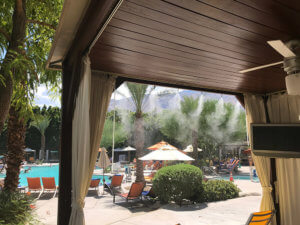Catering to Market Segments
 According to Gallup’s 2014 Hospitality Industry Study, hotel customers value location, price and quality above everything else when choosing a hotel. Each of the six distinct segments of the hotel market — luxury, upper upscale, upscale, upper midscale, midscale, and economy – are different, and to truly create long lasting relationships, hotels must cater to the preferences of guests in their respective market segments. This becomes especially important in the luxury and upscale divisions where guests value the look and feel of a property. Understanding what is important to customers, offering products and services that matter most to guests, and ensuring that staff members can deliver on guest preferences are key factors to boosting a hotel’s business growth. Furthermore, Gallup’s study highlights that guests are willing to pay more for significantly improved services.
According to Gallup’s 2014 Hospitality Industry Study, hotel customers value location, price and quality above everything else when choosing a hotel. Each of the six distinct segments of the hotel market — luxury, upper upscale, upscale, upper midscale, midscale, and economy – are different, and to truly create long lasting relationships, hotels must cater to the preferences of guests in their respective market segments. This becomes especially important in the luxury and upscale divisions where guests value the look and feel of a property. Understanding what is important to customers, offering products and services that matter most to guests, and ensuring that staff members can deliver on guest preferences are key factors to boosting a hotel’s business growth. Furthermore, Gallup’s study highlights that guests are willing to pay more for significantly improved services.
Guest Well-being
Understanding what is important to customers is a key step to creating a sense of well-being. Many hotels have begun to embrace guest well-being as a cornerstone of their efforts to make their hotels luxurious and comfortable. From offering yoga classes to complimentary in-room cucumber water, hotels are finding new ways to ensure guest comfort. Gallup’s study also suggests that there is a strong link between guests’ feelings of well-being and customer engagement. Customer engagement refers to the emotional link between your hotel and a guest, which can only be fostered through a sense of being cared for. Engagement is a huge predictor of business growth. Gallup reports that 79% of guests who feel a sense of well-being at a hotel also report feeling engaged, which ultimately leads to greater spending during a stay and booking more nights at the hotel. A guest that has no engagement will typically spend about $403 during a stay, while a highly engaged guest spends an average of $588.
Standing Out
While any hotel can have comfortable beds or offer massages in their spa, each hotel owner needs to find a way to stand out. Customers report wanting a “distinct” experience at a hotel– something that sets their stay apart from every other. It’s worth it to challenge legacy luxury products and services that add cost, but not value such as cable TV and complimentary coffee in the lobby. The best hotels not only place major focus on customer service, but also think outside the box. One area where hotels can create a unique and favorable experience is by ensuring that hotel lounging spaces, dining and poolside areas are cool and comfortable by including a misting system.
Challenge: Keeping Hotel Guests Comfortable Outdoors A Happy Customer is a Repeat Customer



